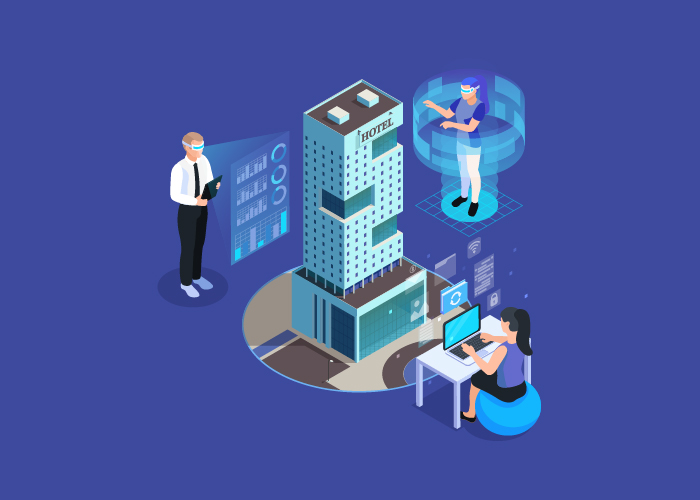How Artificial Intelligence is reshaping the Hospitality sector

The hospitality industry continues to be one of the largest industries worldwide and it is growing as we speak. As of 2019, there were over 700,000 hotels and resorts worldwide and around 173 million people continue to be employed in the hotel and motel industry. The success of the hospitality industry relies heavily on the quality of customer service and overall customer satisfaction. Attracting and being able to retain guests is what defines a successful hospitality strategy.
In the present digital economy, it is safe to say that any industry that is slow on the uptake of technology is bound to be left behind. However, the hospitality industry is not one such industry. Rapid technological innovations specifically Artificial Intelligence (AI) have been a part of the hospitality industry for a while now. The adoption of Artificial Intelligence in the hospitality and service industry has solved a few challenges and increased how efficiently the industry is functioning.
AI is being used by hoteliers the world over to improve the guest experience. AI in the hospitality industry is by no means replacing the human staff. However, it is assisting humans in providing services cost-effectively and efficiently.
Here’s a look into how AI is impacting and leaving its mark on the hospitality industry
Data Collection and Personalization
As human beings, we like to believe that the world caters to our needs and demands. Personalization offers just that. To personalize experiences for guests, knowing their likes and dislikes is of great importance. Through AI and data processing you can make tailored recommendations to customers and potential customers. Data can be harnessed to provide a more personalized experience to guests to make them keep coming back for more. Collecting data about your guests can give you key insights that can help you as a hotelier make the experience of your guests that much more meaningful. Leveraging the data you already possess to transform hotel experiences is also necessary. And while data collection is a fairly easy process, hoteliers should make sure they have stringent security and compliance policies in place before processing the data.
Room Occupancy and Maintenance
AI models can optimize room costs according to seasonal demand and supply. And they are dynamic in the sense that they can keep a track of room occupancy and rooms available. With AI you can strategically use your available resources to get the best Return on Investment (ROI). AI can also utilize data with regards to guest-feedback and use this information to provide details on what upgrades a hotel can implement and which of these will be likely to deliver the best returns. It can also oftentimes simultaneously use sensory data to highlight latent issues before they arise and expedite the needful solutions.
Chatbots
Chatbots are available on hotel websites to answer questions put forth by customers at any time of the day. These chatbots are powered by machine learning and artificial intelligence. These chatbots understand languages and commands and learn as they continue to collect data and function effectively. In terms of efficiency, chatbots are better at handling this activity than humans are, Chatbots can also handle repetitive customer service interactions, thus helping the human counterparts. Trained staff can handle more complex issues instead of utilizing their energy on mundane queries.
We also have email bots that can identify and process simple requests like room availability, cancellations, and reservations. Chatbots also reduce overhead costs drastically, are scalable, and available 24/7 Chatbots and trained staff form the best combination and can bring out the best in the hospitality sector.
Robots
Not surprisingly, Japan was one of the first countries in the world to have a hotel run entirely by robots. Robots perform tasks by imitating human cognitive functions. They can be used to promote speed, cost-effectiveness, and accuracy. Robots can be employed to answer simple customer queries and provide information about the hotel services.
In a bid to save money and be innovative, Hideo Sawada came up with the idea of letting robots take over simple human jobs in the hotel. This brought down the mounting costs remarkably. The robots are equipped with facial recognition features and they person room service tasks like answering queries and giving real-time tourist recommendations. While the initial cost of procurement for these robotic technologies is slightly high, in the long run, they can prove to be more beneficial.
AI has made it possible for the hospitality industry to understand and analyze customer behavior. From assisting with the front desk services to automating back-end tasks, Artificial Intelligence has been making its way into the nooks and corners of the hospitality industry. AI in hospitality up until now focuses largely on customer satisfaction and business optimization. With Artificial Intelligence hotels can also reduce consumption of energy and replenishable resources. And if used with due caution it can help in boosting sales and creating memorable experiences for the guests.
